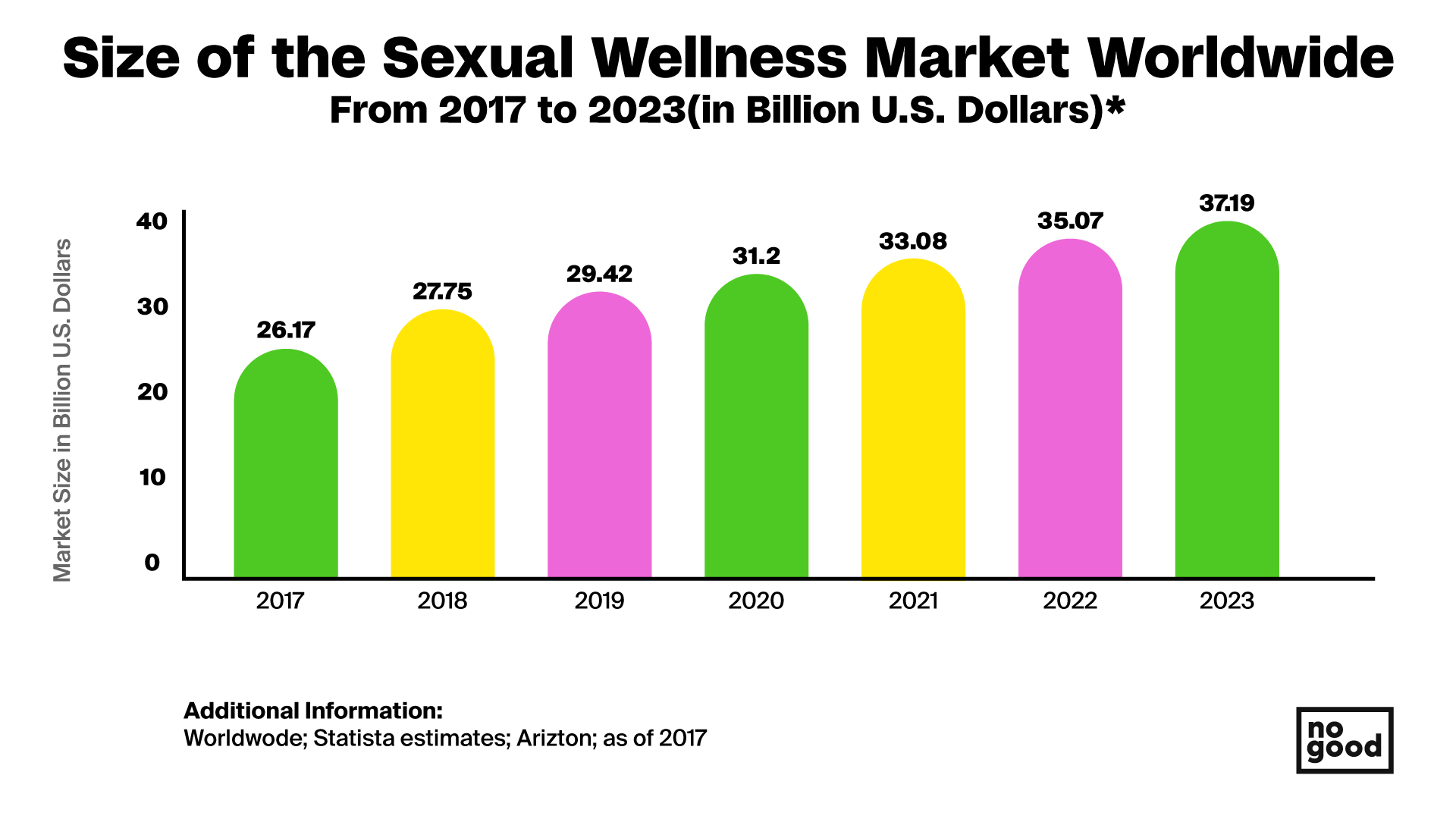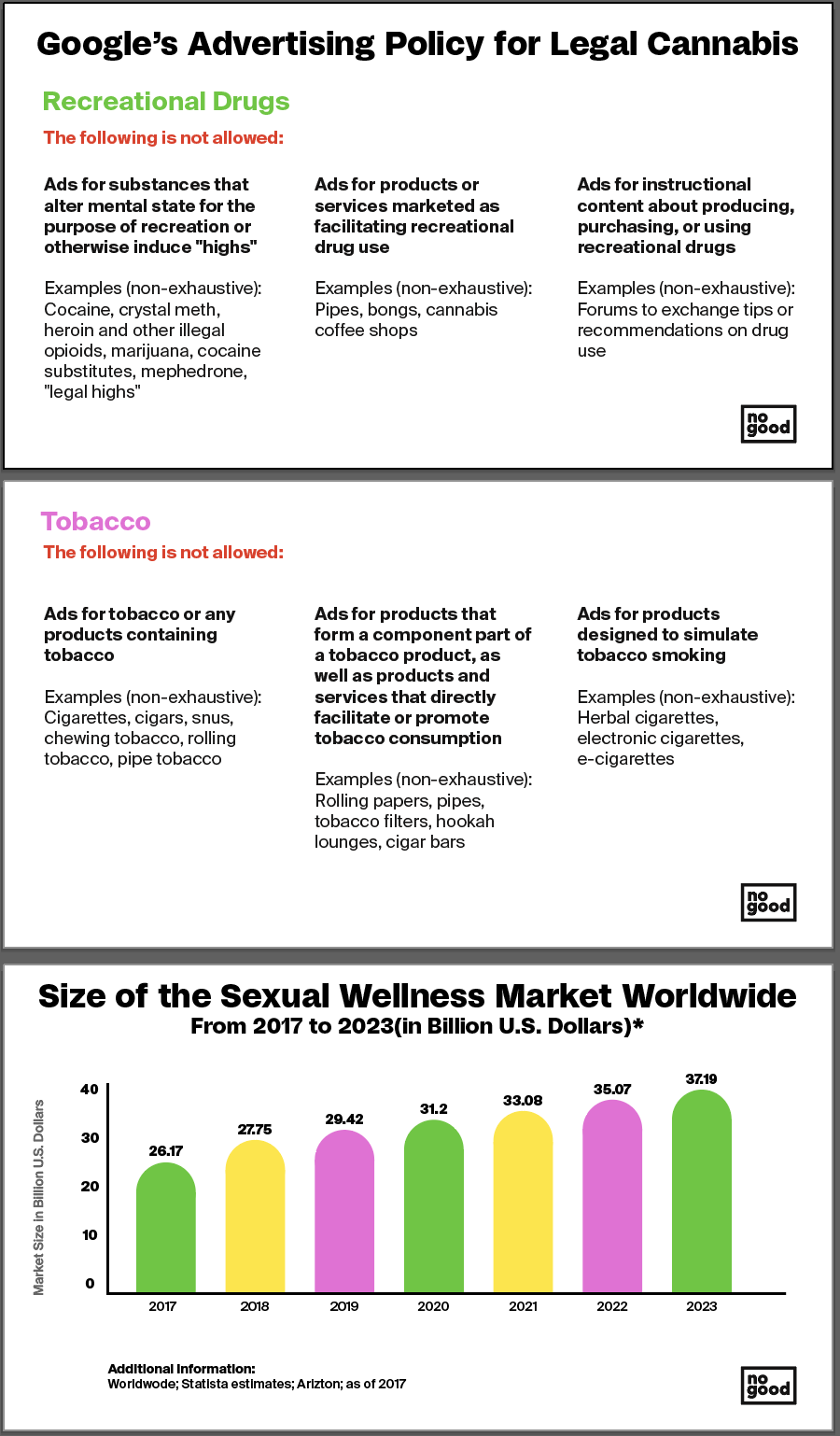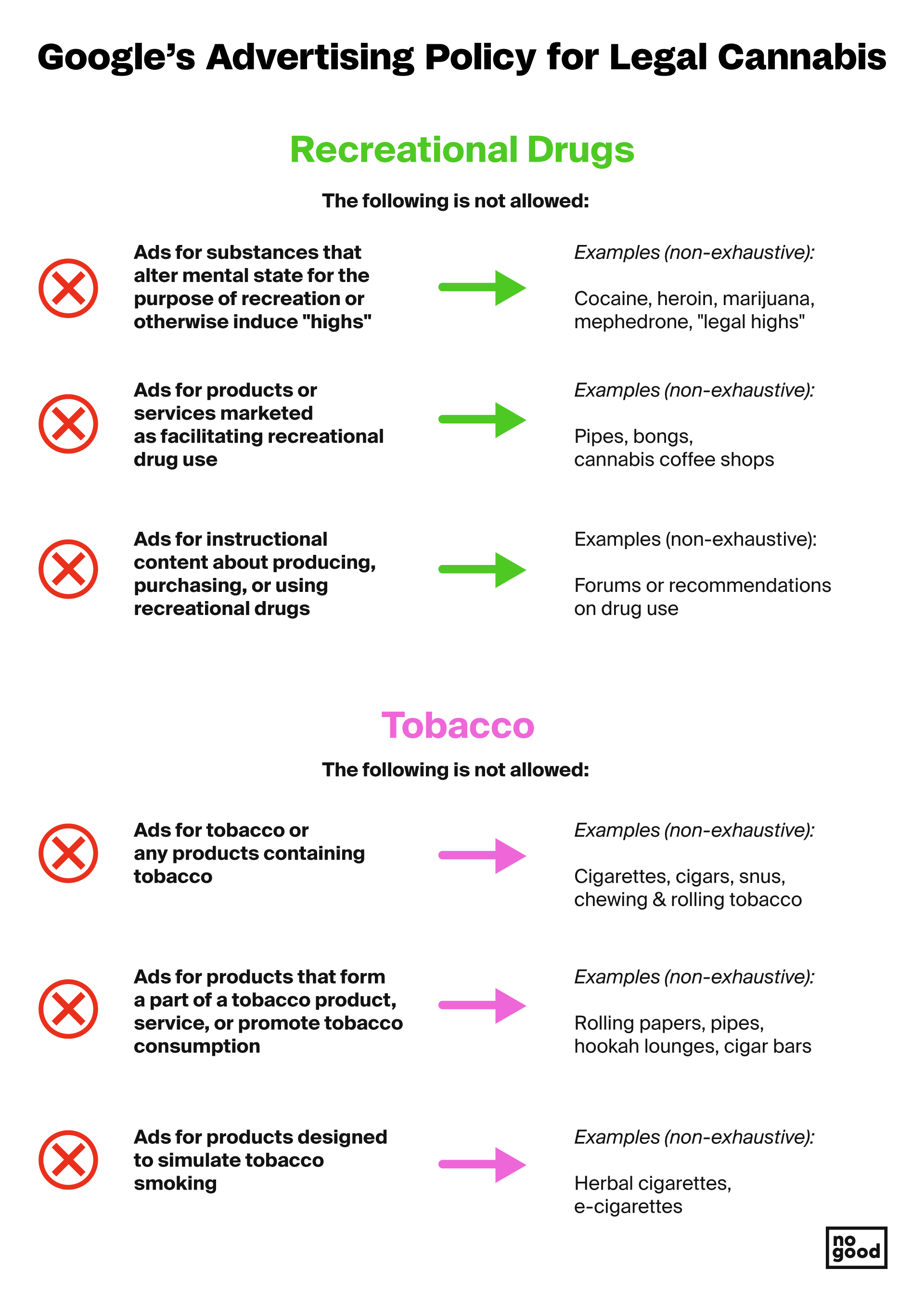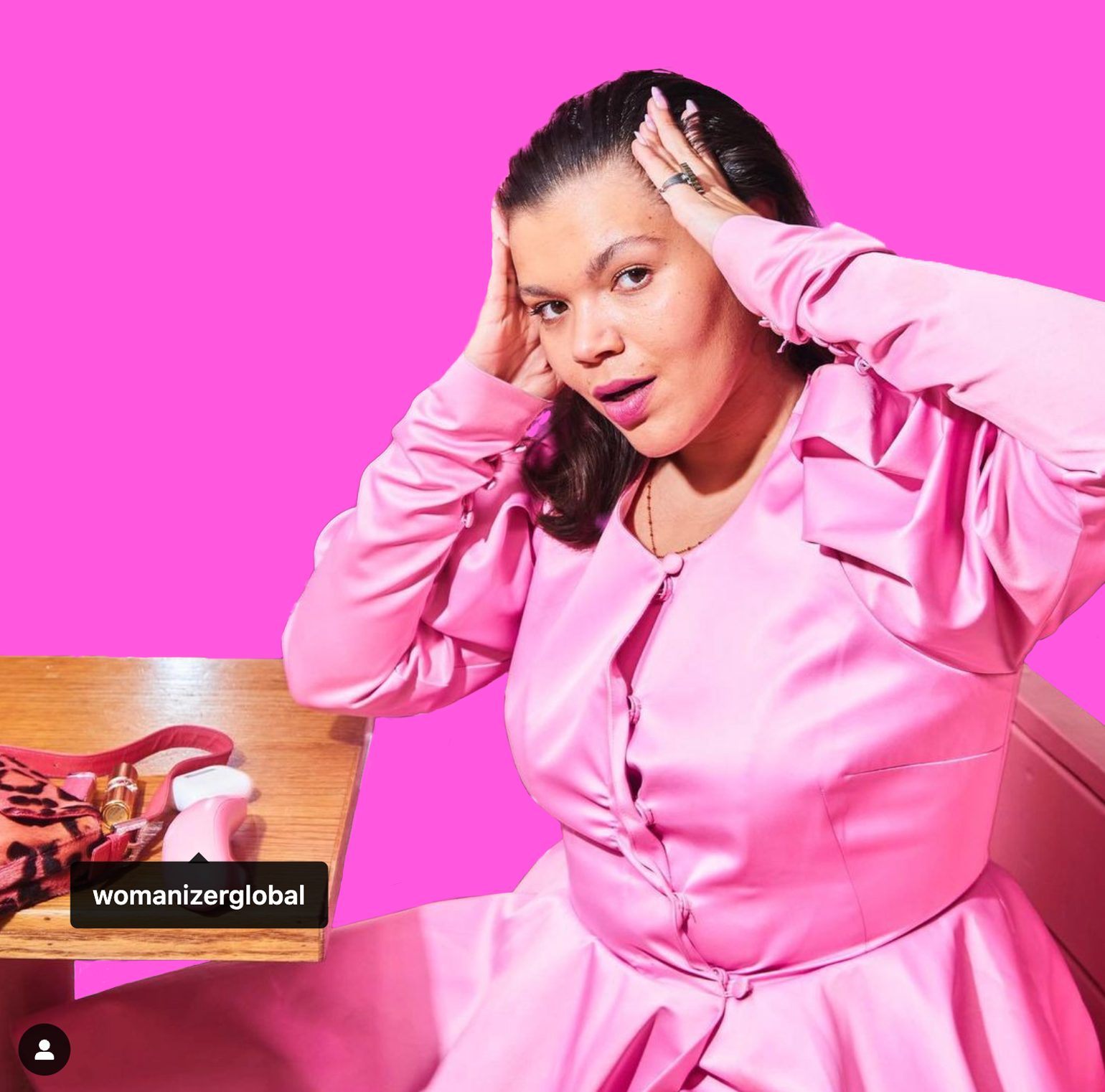When it comes to performance marketing and digital advertising not all products are created equal. What exactly does this mean? It means just because you have a product you are selling, does not mean you can advertise it on any platform in any way you wish. The popular paid media platforms like Google, Meta, Twitter & TikTok all have their own advertising policies limiting what you can promote and who you can serve ads to depending on what industries you’re in. When marketers come across what are known as “restricted verticals,” they must create holistic, robust strategies to reach their target demographic.
What is a “Restrical Vertical?”
Verticals like sexual wellness, legal cannabis, and even cryptocurrency have become increasingly popular over the last few years. In fact, the sexual wellness industry is expected to generate $54.6 billion in sales by 2026, and research firm BDSA estimates legal cannabis sales to hit $30 billion in 2022, and $47.6 billion by 2026, surpassing that of craft beer. Even with these striking numbers and large market shares, these verticals face heavy restrictions when it comes to advertising, making it increasingly difficult for advertisers and brands to communicate with their target markets. Thus these industries have become known as “Restricted Verticals,” and marketers worldwide are scratching their heads on how to effectively market them.

Sexual Wellness
For the sexual wellness vertical, social media ads are pretty much a no-go. Meta, Twitter, TikTok and Pinterest all have strict advertising policies for this vertical, not allowing any to be served, regardless of the ad’s content. Some brands and advertisers have gotten crafty, setting up “buffer” pages to direct users where the product selection is limited, and the copy is chosen carefully. However, eventually the advertising platform sees through this blackhat strategy, and sooner or later shuts them down. Because this does not create a sustainable and holistic strategy, it’s not something we at NoGood suggest or ever consider applying in our rapid experimentation framework.
While you can advertise on Google Search Ads and the Google Display Network, it is moderately restricted. This means it must be relevant to a user’s search history and will only serve based on the following conditions: the user’s age, the local laws where the ad is being served, and the user’s SafeSearch settings.
Additionally for this vertical, shopping ads do not display on the first page of the search results and users must click the shopping tab to see relevant products. However, they will only see product listing ads and not organic shopping results.
Because Google Search Ads is essentially the primary advertising platform available for use in this vertical, it makes the landscape extremely saturated and one of the most competitive verticals when it comes to search engine marketing.
Legal Cannabis
For the legal Cannabis industry, it’s even more limited. Across all Google properties, all ads for this vertical are prohibited. The same goes for Meta, Twitter, TikTok, Pinterest and a myriad of other platforms.

However, when it comes to loopholes for this in Google, many advertisers have found solutions that work without facing any sort of violation. While you cannot make mention of trigger words like “marijuana” in the ad copy or landing page, if you’re willing to take the risk you can still bid on the term. Therefore if your ad and landing pages contain no trigger words, you should be fine to run your ad as long as there’s no obvious or questionable content on the website.
However, at NoGood, we do not consider this a viable solution, and in cases like this, we find sustainable and holistic solutions to market these types of products. We will get more into this in a moment.

Cryptocurrency
Now, when it comes to Cryptocurrency marketing, this is where you will see ad platforms vary in their levels of restriction. For example, any Crypto business wanting to advertise on Reddit, there is a quarterly minimum spend that must be reached and you also must utilize their managed services platform. There is no sort of application process or approval required, you simply just need one of their account managers to oversee your campaigns.
If you are promoting products or services related to crypto mining or exchanges and wishing to advertise on Google, you must meet certain criteria, receive a special certification from Google themselves, and be licensed as a legitimate provider. You would do this by uploading specific documentation for which they do have an application process. Each country has different criteria
to advertise, so you must do this country by country. But once you get this done, you are free to advertise as you wish, as long as you are following the advertiser guidelines.
Meta has a very similar Cryptocurrency policy as Google for these types of business and also requires them to follow a similar application and approval process. However, there are exceptions to this rule. Advertisers who run ads promoting the sale of blockchain technology that are not a virtual currency, such as NFTs, don’t need to apply and confirm eligibility at this time. Additionally cryptocurrency news/education sites, crypto tax services, blockchain tech news, and wallets that only allow users to store their coins, not buy or sell, do not require authorization either; they are free to advertise as they wish, with the caveat they follow the advertising guidelines.
Twitter also has their own unique set of rules when it comes to advertising in the cryptocurrency space. They have two levels of restrictions for this vertical: prohibited globally and restricted globally. Depending on your product or service you will fall into one of these categories. The following are prohibited globally, which means under no circumstances can you promote them in ads on Twitter:
- Cryptocurrency initial coin offerings (ICOs)
- Initial exchange offering (IEO)
- Initial decentralised exchange offering (IDExO)
- Decentralised crypto borrowing / lending
- DeFi insurance
- DApps
- Decentralised exchanges
For Twitter, being restricted globally means each country has a different policy, and you must comply with local laws. The following cryptocurrency verticals are restricted globally:
- Currency exchange, trading, and related services
- Cryptocurrency exchanges
- Cryptocurrency “hot” wallets
- Cryptocurrency kiosks / ATMs
- Cryptocurrency credit / debit cards
- Non-fungible tokens (NFTs) and related products
Twitter notes in the United States, “The promotion of cryptocurrency products or services is only allowed with prior authorization from Twitter.”
One of our clients, Rivet, a cloud-based Ethereum API, deals with the crypto space, but it is not a platform that facilitates the trading, purchasing or mining of cryptocurrencies. Instead, they provide decentralized applications with a connection to the blockchain. This means they can advertise across Google, Meta, Twitter, Reddit and many others without need to go through the application or approval process. For other Crypto businesses, this is not the case, and keeping track of all the different restrictions per platform requires diligence.
What Advertising Platforms Are Best for Restricted Verticals?
Navigating all of the differences in policies across ad platforms can be confusing, time consuming, and a strain on resources. As marketers at NoGood, we look for viable, sustainable and holistic solutions when laying out a channel mix for our clients. We iterate on these until we strike gold. For us, taking risks on platforms we know we cannot advertise on is not something we find to be valuable for our clients or for ourselves. Therefore, when we find ourselves in the face of tough regulation and advertising limitations, we look in our back pocket of alternative solutions.
Solutions with heavy focus on relationship building and a content first strategy always win with restricted verticals.
Our top channels for advertising restricted verticals are the following:
- Community Led Growth
- Influencers
- Affiliate Marketing
- PR
Community Led Growth
The strongest lever brands in restricted verticals have is their community. If you are able to cultivate and foster a community for your brand. One CBD brand in particular has done this in an excellent way. Frigg, which launched in 2020, curated a community via Clubhouse where they discussed topics like skincare, beauty, education and more.
“We just started a CBD beauty room on Clubhouse…to meet different influencers and attract people who are already into the CBD category,” says founder Kimberly Dillon. “One area that we are focusing on is micro influencers and education through these new platforms like Clubhouse.” Her next priority: “What we’re doing is looking for alternative channels…like working with estheticians and salons and spas and empowering them, and having word-of-mouth foot soldiers, as it were, to spread the word on our behalf.”
Influencers
Influencer marketing is one of the most popular and easy ways to get around advertising regulations to reach your target audience — if you have the budget to do so. Influencer marketing is great because not only are you able to promote your product, but the influencer’s content can also be used in other areas of your marketing strategy for user generated content, as long as you have consent from the individual.
One thing to keep in mind is the age of the influencers you will be engaging with. Sexual wellness, legal cannabis, alcohol and vapor brands should be mindful to engage in responsible and conscientious influencer strategies, only working with individuals who have adult followings. A perfect example is how Womanizer, a sexual wellness brand, has partnered with social media influencer Tiff Baira who has an over 21 audience with an interest in nightlife & dating in NYC.

As marketers, it’s imperative to remember that with great power comes great responsibility.
Affiliate Marketing
Another avenue to reach your target audience without running into any restrictions is Affiliate Marketing. Affiliate marketing is when brands or advertisers utilize affiliates, also known as publishers, to promote their products on different websites to reach new audiences. In terms of the sexual wellness industry, this is a great avenue as blogs and media outlets continue to cover a variety of topics shift stigmas and focus revolving around women.
In the world of restricted verticals, utilizing affiliates is an extremely common practice, and if you are a brand in one of these industries not running an affiliate program, you will surely be left behind in 2022.
Not sure how to effectively run an affiliate program and want to learn more? Check out the Affiliate Marketing Guide for 2022 which can be found on the NoGood Blog.
Public Relations (PR)
Public relations, or PR, is another great way to generate buzz around your product or service without worrying about restrictions and regulations. One way brands can do this is by utilizing their customer database to conduct surveys or studies relevant to their verticals. You can put out press releases on the wire with catchy headlines that highlight a unique data point uncovered by these surveys. News and media outlets browse the wire to find stories to highlight on both TV and the web, so this is great exposure for brands. If you have the resources, you can also pitch these press releases to media outlets yourself in order to gain more coverage.
Another way to utilize public relations is by sponsoring research in your vertical as well. The legal Cannabis industry does this very well, as they aim to decrease stigmas and encourage use of their products. Charlotte’s Web is a brand of CBD which consistently publishes studies on their findings. Recently, they distributed a press release on how their hemp extract shows positive effects on stress, sleep and wellbeing. This is a great example of how to utilize your resources in order to promote your restricted brand in a positive and beneficial way while simultaneously increasing exposure.
————————–
If you’re a brand or an advertiser running campaigns for restricted verticals and have been struggling with constant ad disapprovals or even being banned from ad platforms for blackhat strategies, it’s time to abandon these strategies. At NoGood, we believe best practices are ones that have longevity and will make a long term impact for your business. We never suggest running ads on platforms which you know you cannot do. Instead, think about alternative strategies so you won’t face restrictions. We hope these suggestions all aid in creating integrated, holistic approaches for your product or service.





